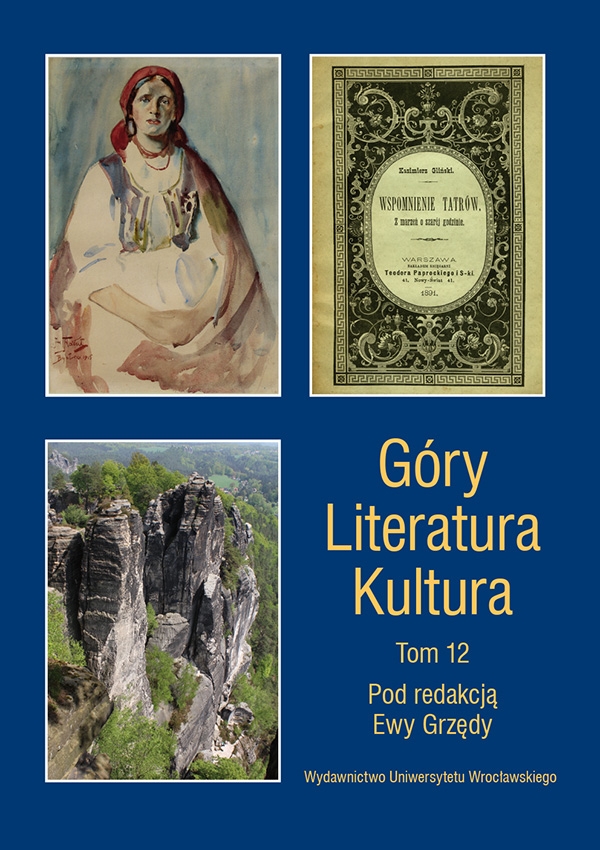Abstrakt
W naszej letniej stolicy… In our summer capital… Ludwik Szczepański’s satire on Young Poland tourists in the Tatras
In the article the author analyses a slightly forgotten satirical novel by Ludwik Szczepański, W naszej letniej stolicy, czyli przygoda rejenta Nowakowskiego w Zakopanem In our summer capital or the adventure of Nowakowski, a notary, in Zakopane 1904, published under the pseudonym Wincenty Ogórek. She tackles three topics:
- Placement of the novel in the context of other Young Poland period works referring to the discovery of Zakopane as an ideal place for summer holidays by Poles from various parts of the partitioned country, especially by residents of Kraków or Warsaw. In the first two parts of the article the author presents an outline of the plot and then discusses the topography of Zakopane and its environs, brilliantly depicted by Żeromski.
- The subchapter “…this Zakopane train is especially full of nice, friendly women…” contains a detailed analysis of direct and indirect linguistic, stylistic, personal and cultural references to Kazimierz Przerwa-Tetmajer, whose satirical anti-portrait as the poet Przerwański, is included in the novel by Szczepański.
- In the last part of the article the author points to those features of Szczepański’s novel which make it possible to describe it as a “resort novel”. In addition, she refers to other titles of literary works from the Young Poland period, which fit in with the proposed literary convention. The term “resort novel” refers to Jacek Kolbuszewski’s earlier concept of “boarding house novel”. In the conclusion the author points to the possibility of reinterpreting numerous “resort novels” from the Young Poland period with the help of the latest tools used in the description and analysis of various phenomena relating to tourism understood as a subject of research in the humanities.
Słowa kluczowe:
przełom XIX i XX wieku, Zakopane, letnia stolica Polski, powieść kurortowa, satyra, Ludwik Szczepański, Kazimierz Przerwa-Tetmajer, turn of the 20th century, summer capital of Poland, resort novel, satire


